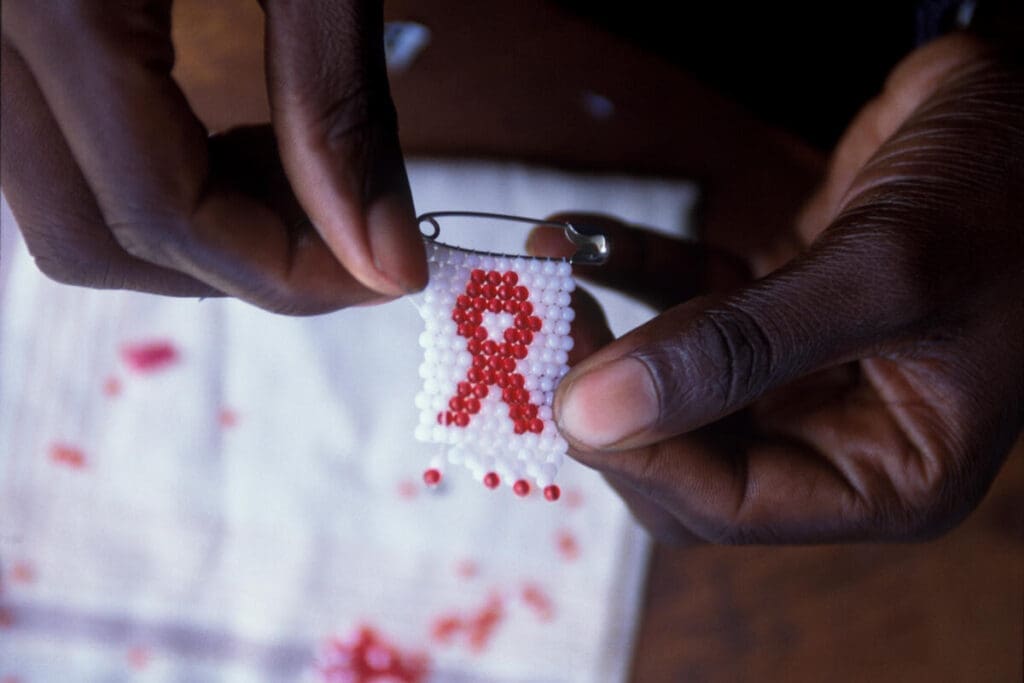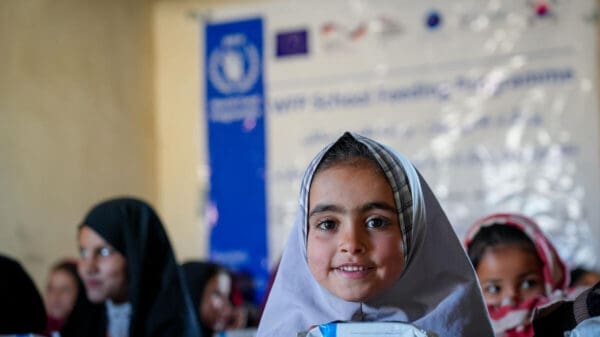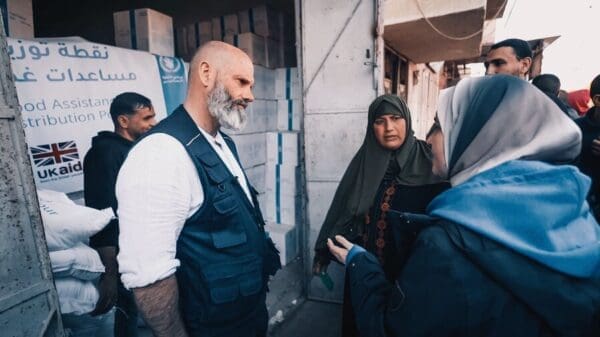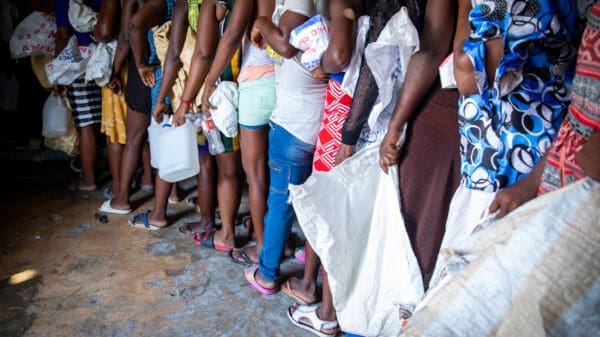Food Is the First Line of Defense Against AIDS

It’s World AIDS Day, the right time to remember that the United Nations, the Elton John AIDS Foundation and UNICEF have set a goal of eliminating AIDS by 2030. But the hunger epidemic we are facing as a result of COVID-19 is threatening to make that goal impossible.
Although we have made much progress on reducing the number of new HIV cases and AIDS-related deaths, 38 million people around the globe are still living with HIV, and over a million new cases are emerging every year. And while in the U.S. we are realizing that HIV is not a death sentence, that’s not necessarily true for the rest of the world.
Many people don’t realize the strong link between hunger and AIDS, but it is one of the major reasons why I became president and CEO of World Food Program USA. As a founding board member of the Elton John AIDS Foundation, I saw firsthand the devastating effects of malnourishment on AIDS progression. Poor nutrition weakens the body’s defenses against the virus and accelerates the development of HIV to AIDS. Poor nutrition limits the body’s ability to fight off opportunistic infections associated with AIDS that often kill people faster than the original virus does. And unlike AIDS, hunger is solvable.
Additionally, antiretroviral drugs are very strong; if taken without food, they can make a person extremely weak and ill; they can also intensify feelings of hunger. This side effect is one of the main causes for a lack of adherence to HIV medication in areas like in many parts of Africa, where food insecurity is high. People who do not have food are less likely to take their HIV medication.
According to U.N. data, nearly 700 million people do not know where their next meal will come from, with 30 million people relying solely on the U.N. World Food Programme for their survival. Urgent funding is needed to feed millions of people in countries like South Sudan, Nigeria and the Democratic Republic of Congo (DRC) that are teetering on the brink of famine. These countries also have some of the highest AIDS rates in the world.
In the DRC, for example, 22 million people are severely food insecure – the highest population of any single country. Because of intensifying conflict and displacement, both food and medicine are in short supply. In northeast Nigeria, another major conflict area, 4.3 million people are on the brink of starvation. And, in South Sudan, conflict, locusts, and COVID-19 have come together at the peak of the lean season and now threatens to significantly deteriorate already high food insecurity levels. We have been able to reach these conflict-affected people with a mix of food, cash and nutrition assistance. But there is not enough of any to keep famine at bay.
The problem is that the U.N. World Food Programme currently faces a shortfall of billions of dollars. In previous years, the world’s governments funded the majority of food aid efforts; but a combination of increasing rates of hunger and depleted government resources means that millions of women, children and men, through no fault of their own, are going to die of starvation if the private sector and wealthy, influential Americans don’t step in. Combine this with the socio-economic impact of the coronavirus pandemic, which is proving to be more disastrous than the actual virus in many countries.
This doesn’t have to be an inevitable outcome. Ending hunger is an achievable goal. But for our efforts to be successful, the scale of this intervention has to rival the effort that drastically reduced the number of HIV infections in the 2000s.
This can be a story of incredible global coordination and achievement. In the past century, humanity has made remarkable progress in increasing life expectancy, reducing maternal and child mortality and eradicating diseases. We have reduced the stigma of AIDS and reduced new HIV infections by 40% since its peak in 1998.
Because new infection rates are at a record low in the U.S., many Americans have moved on from AIDS to champion other causes instead. But the AIDS epidemic, like COVID-19, urgently requires a global, focused intervention. Millions of people may have medicine, but they do not have food; and both are needed to stop the progression of HIV to AIDS and save millions of lives.
Barron Segar is president and CEO of World Food Program USA and a founding board member of the Elton John AIDS Foundation.




